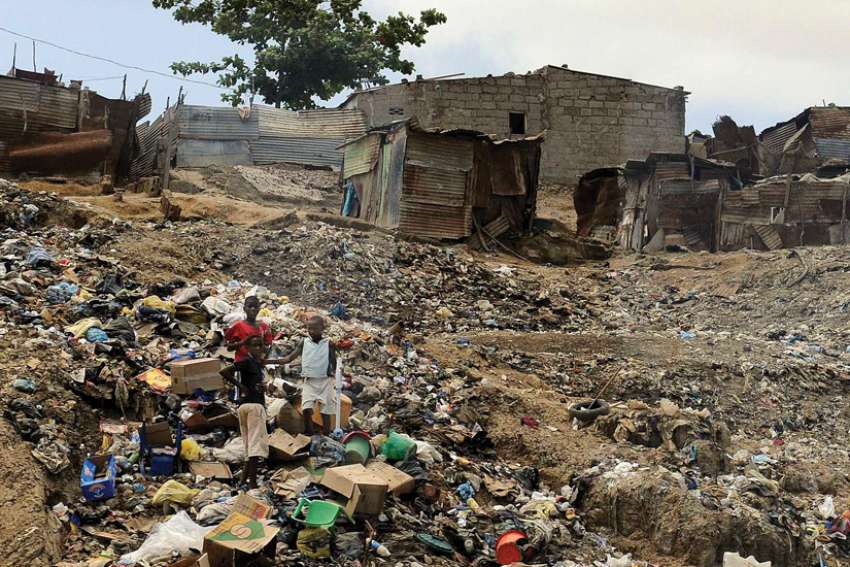“Yes, we have a pandemic,” said Development and Peace advocacy officer Genevieve Gallant. “But there are underlying things that we haven’t addressed.”
Before COVID the world’s nations had agreed to 17 development goals for the world’s underdeveloped countries and set a deadline of 2030. Ending poverty, reducing inequality, meaningful education for all, economic, social and political equality for women and genuine action on climate change all seemed within reach before the pandemic stopped the world.
At a United Nations conference on financing for development, countries conceded the novel coronavirus has put a dent in those plans.
“The pandemic has caused immense human suffering across the globe and triggered the worst economic and social crisis in generations,” said the final document from the April 12-15 Economic and Social Council forum on financing for development.
The UN and individual countries, including Canada, remain committed to the 2030 development goals. But it’s hard to ignore the fact the world has not managed fair, equitable access to vaccines. As of April 9, low-income countries had received 0.2 per cent of 700 million doses administered so far, according to the World Health Organization. Eighty-seven per cent of COVID-19 vaccine doses have gone to citizens of upper- and middle-income countries.
The UN estimates the COVID development hit comes to about $90 billion. The World Bank believes that between 119 million and 124 million more people have been pushed into poverty around the globe.
The UN conference on development financing was closely followed at Development and Peace, Canada’s Caritas agency, which is committed to helping achieve the 2030 goals.
“We’re assuming the government is going to handle things with climate change. We’re assuming the UN is going to handle things with distribution of vaccines. So we just have to stay home,” said Gallant. “But I think, arguably, we have to be more active citizens — asking questions of our government and challenging our government and challenging our institutions so that they’re actually doing what we want them to do, so that we can leave our homes, so that we can rebuild in a more just manner.”
That means pushing Ottawa to spend more on Overseas Development Aid (ODA).
“In some ways, ODA is solidarity,” said Gallant. “It’s our taxes in action. We have a responsibility to care for others and this is how we do it.”
Development and Peace’s appeal to government isn’t direct, Gallant pointed out. The 55-year-old Catholic development agency counts on its 10,000 members and Catholics more generally to make the case for global solidarity.
“I think this pandemic has given us the means to illustrate for people how interconnected we really are,” Gallant said. “If anything, we have the means now to make a connection between people’s personal experience and the global change that needs to happen.”
Canada’s spending on foreign aid had been expanding before the pandemic, Global Affairs spokesperson Ciara Trudeau told The Catholic Register. “For the calendar year 2020, Canada’s ODA increased eight per cent (or $515 million) to $6.7 billion,” Trudeau wrote in an e-mail.
For the first time in a decade, Canada’s 2020 foreign aid as a percentage of the country’s Gross National Income was above 0.30 per cent, according to preliminary data. It’s still less than half the 0.7 per cent goal Canada first proposed in 1970, which is the standard donor countries hold out for themselves. Trudeau said Canada well understands that equitable global vaccine distribution will be key to getting the world back on track to the 2030 development goals.
“To date, the Government of Canada has announced over $2 billion to support the global response to COVID-19. This includes $940 million in funding for the Access to COVID-19 Tools (ACT) Accelerator to support equitable access to COVID-19 tests, treatments and vaccines,” said Trudeau.
Whether smaller development organizations such as Development and Peace can have a meaningful role in helping Ottawa spend its foreign aid dollars is still a question, said Gallant.
“We want to make sure that the government of Canada is going to engage with a broad number of NGOs and international development organizations, not just focus on a few heavy hitters,” she said.


